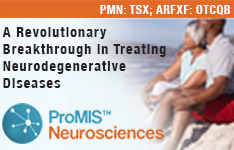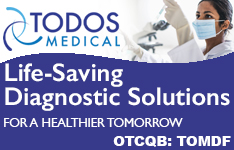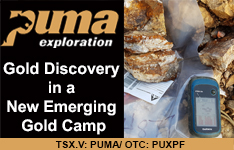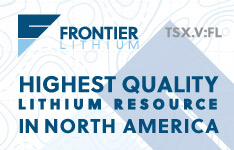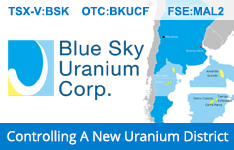Novamind Inc. (NM:CSE), whose mission is to increase access to psychedelic medicine for a range of mental health conditions, recently announced the company will be conducting a significant phase II clinical trial sponsored by the Usona Institute. The trial will investigate the use of psilocybin — a naturally occurring psychedelic compound — to treat major depressive disorder (MDD), a move that the company hopes will nudge the dial toward FDA approval of the drug.
The market value of medical psychedelics is valued at $190 million and is expected to exceed $2.4 billion by 2026.
Dr. Paul Thielking, Chief Scientific Officer at Novamind, commented, "The Psilocybin Trial is a key step in moving psilocybin through the clinical development process and closer to regulatory approval. Today marks another exciting milestone for our team as we continue to support drug developers, not-for-profits, and academic partners to accelerate psychedelic research and improve patient outcomes."
How & Where Psychedelics Can Help
An estimated 280 million people worldwide have depression, and psilocybin is being recognized as a potential new tool to address the condition. In 2021, Novamind was awarded two Schedule 1 Licenses from the U.S. Drug Enforcement Agency to store and administer psilocybin for research.
Novamind enables safe access to psychedelic medicine through a network of integrative, outpatient mental health clinics operating in the U.S. under the Cedar Psychiatry and Foundations for Change brands. The company also operates Cedar Clinical Research, a contract research organization that conducts clinical trials for psychedelic medicines including ketamine, psilocybin, LSD, and MDMA, and performs other evidence-based research on psychedelic medicine and how it can be used to enhance mental health.
Mind Medicine (MindMed) Inc. (MNMD:NASDAQ), a clinical-stage biotech company focused on psychedelic drugs, is planning a Phase IIb trial that Novamind has been selected to host. The clinical trial is the first commercial study of LSD in 40 years and will investigate LSD’s ability to reduce anxiety symptoms in adults.
Novamind’s CEO, Yaron Conforti, told Streetwise Reports that the company is specialized in “treating people who are suffering with mental health issues, including treatment-resistant conditions which the standard of care in pharmacology hasn't been able to treat.”
The Novamind Approach to Treatment Is Unique
Some of the unique programs offered by Novamind at its clinics include a palliative care program using ketamine in addition to psychotherapy to address high levels of anxiety and depression in patients with serious illnesses. The company also offers curated programs such as a substance use disorder program and a program designed for frontline healthcare workers.
“We had 35,000 visits to our clinics in 2021,” said Conforti. The company currently has seven outpatient mental health clinics and will soon be expanding to 10. In these clinics, psychedelic drugs are administered by licensed professionals.
Novamind also works with insurance companies, and many treatments offered at the company’s clinics are covered by insurance. “We’re building our business within the existing healthcare infrastructure,” said Conforti. Novamind also has three research sites in Utah that are co-located with the company’s clinics.
“There’s been a lot of excitement around the psychedelic sector,” said Conforti. “With good reason — we’re talking about emerging therapies where, in some cases, none existed before.” Novamind hopes its clinical research will provide a benchmark for how administering these types of drugs will look after FDA approval.
Because of the combination of clinical sites and research programs, “We’re able to bring mental health innovations to life in real-time,” Conforti told Streetwise Reports. “We can create protocols, enroll patients in our groups, collect the data, and then offer evidence-based, innovative therapies at our clinics.”
“Novamind will continue to invest in bringing innovative mental health therapies to our clinics,” said Conforti. “If we have new therapies come to market, we’re going to be able to help more people.” Just like with new technology, Conforti said, there will be early adopters as well as those who come later to an understanding of the benefits of psychedelic medicine.
“You’re not going to take an MDMA pill every day for the rest of your life,” explained Conforti. Instead, a patient might have one therapeutic experience with MDMA and then another one six months later. The treatments are not self-administered, said Conforti, but are provided with guidance from trained therapists.
The Future of Psychedelics As Medicinal Treatment
Conforti believes that mounting data, along with FDA approval, will help push the envelope when it comes to wider acceptance of using psychedelics as medicine. “Once the curative potential of psychedelics is better understood through data, and the drugs can be provided in a regulated system, prescriptions will be available, and the treatments will be administered in a controlled environment,” said Conforti.
Conforti calls Novamind “drug agnostic,” which means the company is open to a wide range of modalities. In February, Novamind announced that it is enrolling participants in a Phase II clinical trial sponsored by Alto Neuroscience, a leader in precision psychiatry, investigating antidepressant medication for adults with MDD as well as post-traumatic stress disorder (PTSD). Precision psychiatry uses tools such as biometric data, physiological data, and biomarkers to discover which drugs are going to work for certain people.
“Using our clinic and clinical research infrastructure, we want to bring as many new therapies to market as possible, because there is no single mental health therapy that works for all people,” explained Conforti.
The market value of medical psychedelics is valued at $190 million and is expected to exceed $2.4 billion by 2026.
“Last quarter was a record for our company with over $2.45 million in revenue booked for the quarter,” said Conforti. “Our model is working — we’re delivering novel mental health treatments now and advancing critical research, and we’re well-positioned to scale our platform.”
Disclosures
1) Janine Annett compiled this article for Streetwise Reports LLC and provides services to Streetwise Reports as an independent contractor/employee. They or members of their household own securities of the following companies mentioned in the article: None. They or members of their household are paid by the following companies mentioned in this article: None. Their company has a financial relationship with the following companies referred to in this article: None.
2) The following companies mentioned in this article are billboard sponsors of Streetwise Reports: None. Click here for important disclosures about sponsor fees. The information provided above is for informational purposes only and is not a recommendation to buy or sell any security.
3) The article does not constitute investment advice. Each reader is encouraged to consult with his or her individual financial professional and any action a reader takes as a result of information presented here is his or her own responsibility. By opening this page, each reader accepts and agrees to Streetwise Reports' terms of use and full legal disclaimer. This article is not a solicitation for investment. Streetwise Reports does not render general or specific investment advice and the information on Streetwise Reports should not be considered a recommendation to buy or sell any security. Streetwise Reports does not endorse or recommend the business, products, services or securities of any company mentioned on Streetwise Reports.
4) From time to time, Streetwise Reports LLC and its directors, officers, employees or members of their families, as well as persons interviewed for articles and interviews on the site, may have a long or short position in securities mentioned. Directors, officers, employees or members of their immediate families are prohibited from making purchases and/or sales of those securities in the open market or otherwise from the time of the decision to publish an article until three business days after the publication of the article. The foregoing prohibition does not apply to articles that in substance only restate previously published company releases.








